
Julian David Cope is an English musician and author. He was the singer and songwriter in Liverpool post-punk band the Teardrop Explodes and has followed a solo career since 1983 in addition to working on musical side projects such as Queen Elizabeth, Brain Donor and Black Sheep.

Peggy Suicide is the seventh album by Julian Cope. It is generally seen as the beginning of Cope's trademark sound and approach, and as a turning-point for Cope as a maturing artist.
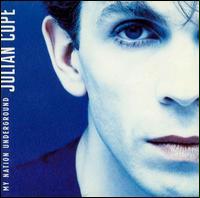
My Nation Underground is the fourth solo album by Julian Cope. It produced three singles including "Charlotte Anne".
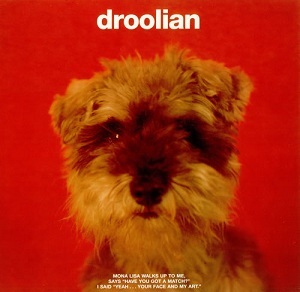
Droolian is the sixth album by Julian Cope, released in 1990.
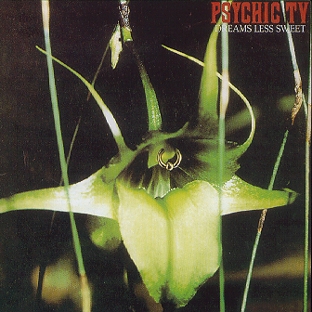
Dreams Less Sweet is the second studio album by English experimental band Psychic TV, released in 1983. It was the last Psychic TV album to feature co-founder Peter "Sleazy" Christopherson.

Jehovahkill is the eighth album by Julian Cope, released in 1992. After the critical success of Peggy Suicide (1991), Cope's idea for Jehovakill was to incorporate a krautrock attitude into his music. He began recording the album with musicians Rooster Cosby and Donald Ross Skinner, while co-producing it with the latter. The sessions yielded what Cope considered to be his most sonically experimental material to date. Originally titling the record Julian H. Cope, he sent an eleven track version to Island Records, who initially rejected its release, but gave Cope extra recording sessions for the album. During the extra sessions, in which six extra songs were recorded, the album became harder and was retitled Jehovahkill.

Interpreter is the thirteenth solo studio album, and twentieth album overall by English rock musician Julian Cope, released by Echo Records in October 1996. Particularly inspired by Cope's involvement with the Newbury bypass protest, the record features socially and environmentally-concerned lyrics. The musician worked with numerous guest musicians, including substantial contributions from Thighpaulsandra, resulting in a sprawling album that extends the pop style of 20 Mothers (1995) while incorporating styles of glam pop, space rock, orchestral pop, with string arrangements and electronic overtones. The record is split into two separate parts, "Phase 1" and "Phase 2".

20 Mothers is the twelfth solo album by Julian Cope, released in August 1995 by Echo. The album's sub-title is "Better to Light a Candle Than to Curse the Darkness".

Rite is an ambient album by Julian Cope and Donald Ross Skinner, released in February 1993 on Cope's own Ma-Gog label. It is the first album in the Rite series and has been described as "a series of lengthy, mostly instrumental jamming freakouts influenced by both Krautrock and psychedelic funk." The album was available as mail-order only.
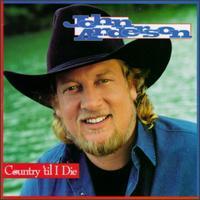
Country 'Til I Die is the fifteenth studio album of country music artist John Anderson. It was released in 1994 under the BNA Records label. The album produced the singles "Bend It Until It Breaks", "Mississippi Moon", and the title track, which respectively peaked at #3, #15, and #35 on the country singles charts. Also included were a new recording of Anderson's signature hit "Swingin'" and a cover of the Georgia Satellites hit "Keep Your Hands to Yourself".
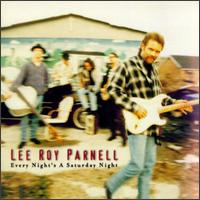
Every Night's a Saturday Night is the fifth studio album by American country music artist Lee Roy Parnell. It was released via Career Records, a sister label of Arista Nashville, on June 17, 1997. The album includes the singles "Lucky Me, Lucky You", "You Can't Get There from Here" and "All that Matters Anymore", which respectively reached #35, #39 and #50 on Billboard Hot Country Songs. Parnell produced the album with his band, The Hot Links.

Livin' or Dyin' is the third studio album by country music artist Jack Ingram, released on March 25, 1997. It was the only album of his career released via Rising Tide Records due to that label closing soon after its release. The first two singles of Ingram's career were released from this album, "That's Not Me" and "Flutter". They both charted poorly with "Flutter" peaking at No. 51 while the other failed to chart altogether in the United States.
Donald Skinner is a guitarist, songwriter and producer primarily known for his work with Julian Cope. Skinner is commonly known by the name Donald Ross Skinner with the addition of the middle name of Ross attributed to him by Cope after Glenn Ross Campbell, the pedal steel player from The Misunderstood. He is currently a guitarist for Love Amongst Ruin and DC Fontana.
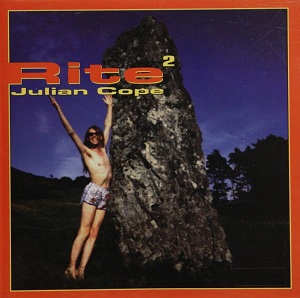
Rite² is an ambient music album by Julian Cope, released in 1997. It is technically Cope's fourteenth solo album, but is also the follow-up to the earlier album Rite and is the second in the Rite series.
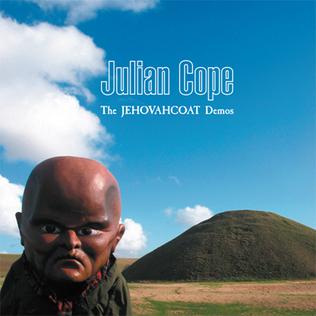
The Jehovahcoat Demos is an album by Julian Cope, released in 2011. It is technically Cope's twenty-sixth solo album, and the mostly instrumental album contains 15 previously unreleased tracks, written and recorded by Cope throughout 1993 in direct response to having been dropped by Island Records in October 1992.

Floored Genius 3 – Julian Cope's Oddicon of Lost Rarities & Versions 1978–98 is a rarities compilation album by Julian Cope, released in 2000 on Cope's own Head Heritage label.

The Skellington Chronicles is the tenth solo album by Julian Cope, released in June 1993 on Cope's own Ma-Gog label. It contains the previously released 1989 album Skellington and its sequel Skellington 2: He's Back ... and this time it's personal, released here for the first time. Skellington 2 was, like its predecessor, recorded in just two days on April 21–22, 1993.

If Only for One Night is the eighth studio album by American country music singer Lee Greenwood. The album was released on May 26, 1989, by MCA Records.
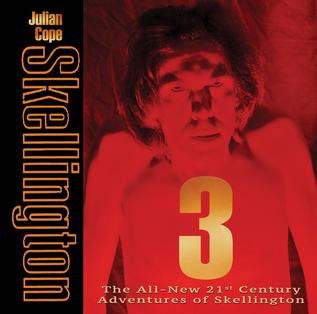
Skellington 3 is the thirty-second solo album by Julian Cope, released in April 2018. The album's sub-title is "The All-New 21st Century Adventures of Skellington". It is the third album in the Skellington series following the earlier albums Skellington (1989) and Skellington 2 (1993).

Let Me Be the First is the second album by Deborah Allen, released by RCA Records in 1984.



















